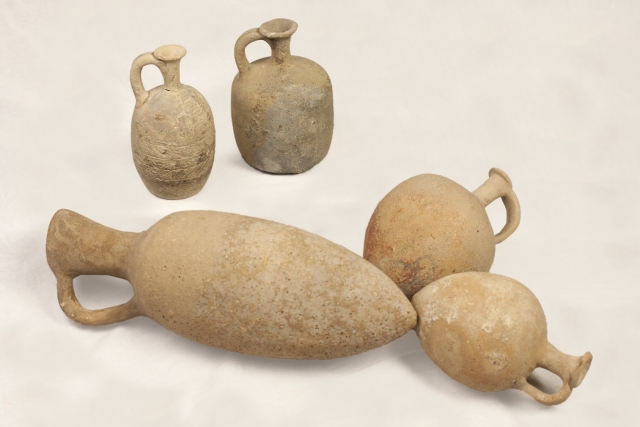The work of the archaeology patrol unit is typically uneventful, some have even used the word boring to describe the role that requires employees to drive from one archaeological site to another seeking out anything out of the ordinary. Given the fact that Judea and Samaria are particularly rich with biblical era sites, there are a lot of places to scope out, but rarely is anything amiss. That changed earlier this week near the Tel Dotan area in northern Samaria, when the patrol came across two thieves trying to rob the ancient cemetery of Tel Dotan just a few miles south of the Palestinian Authority-run city of Jenin.
Tel Dotan is considered one of the most important biblical sites in northern Samaria and is associated, in particular, with the story of the selling of Joseph into Egyptian slavery. The site was inhabited continuously from the Neolithic period well into the early Roman period. According to the book of Genesis, after the eldest brother of the children of Jacod, Reuben, had convinced his brothers to dump Joseph into a pit instead of killing him, they went behind his back and sold him to Ishmaelite traders who were heading south towards Egypt.
that we see from this that whenever events appear absurd, detached from historical causality, it is a sign that Divine Providence is acting in History.
— Jeffrey R. Woolf (@JeffreyWoolf) November 26, 2021
Food for consideration for Hanukkah and our present circumstances. pic.twitter.com/qVlmwUhNJh
Although there is no specific evidence suggesting Joseph’s sale took place in Tel Dotan, the biblical Shechem, present-day Nablus was often cited as being the base for Jacob's massive family, and his gravesite, in which thousands of Jews pray annually, is just a short distance away from Dotan. Bible commentaries say that once Joshua and his forces had conquered the land, Joseph was brought to the place 'from where he left' and buried nearby. This passage along with the proximity of Dotan to Shechem and Joseph's grave, somewhat validates the ancient claim.
Inside the old cemetery at Tel Dotan, there is an ancient burial cave that dates back to the Middle Bronze Age. The thives broke into the cave and ancient pottery was found in the piles of waste removed from the site, including fragments of rare vessels designed in a style Israeli archaeologists largely have nicknamed “chocolate on white”.
The #Palestinian Authority, which is in charge of security in #Nablus, has -- despite official agreements in the Oslo Accords -- refused to fulfill commitments to protect & ensure free access to Joseph's Tomb. https://t.co/83rV36hwtM#Israel #Palestinians #Zionist #Palestine
— Legally Israel 🇮🇱 #NosafespaceforJewHate (@LegallyIsrael) January 11, 2023
The Civil Administration of Judea and Samaria, which oversees the Archaeology Unit, announced that they will continue to fight the phenomenon of antiquities robbery. This illegal robbery and arrest joins a variety of arrests and attempted thefts that the Archeology Unit of Judea and Samaria attempts to stop on a daily basis, although it is a rarity to see a robbery in action. Typically, thieves are caught after the fact using camera images or are caught leaving the scene, or they are scared away attempting to access a site. Although the Civil Administration refused to disclose whether the robbers of the ancient cemetery were Palestinian residents of Jenin, due to the lack of Israeli presence in the area due to security threats, it is likely that is the case.
When Joseph was wandering the countryside looking for his brothers, a man found him wandering around. Gen 37:15. Yah's Word can be like this. Could have been Gabriel. Could of been a pre incarnate Yeshua. Regardless, the man said he would find them in Dotan.
— Dean Berker (@benyamin818) December 23, 2020
Archeology Staff Officer in the Civil Administration, Hanania Hizami added in his personal statement that: "Preserving the archaeological sites in the region is placed at the top of the Civil Administration's list of priorities. The activity carried out is part of the many efforts we are leading, with the aim of eradicating the phenomenon of antiquities theft in Judea and Samaria."


